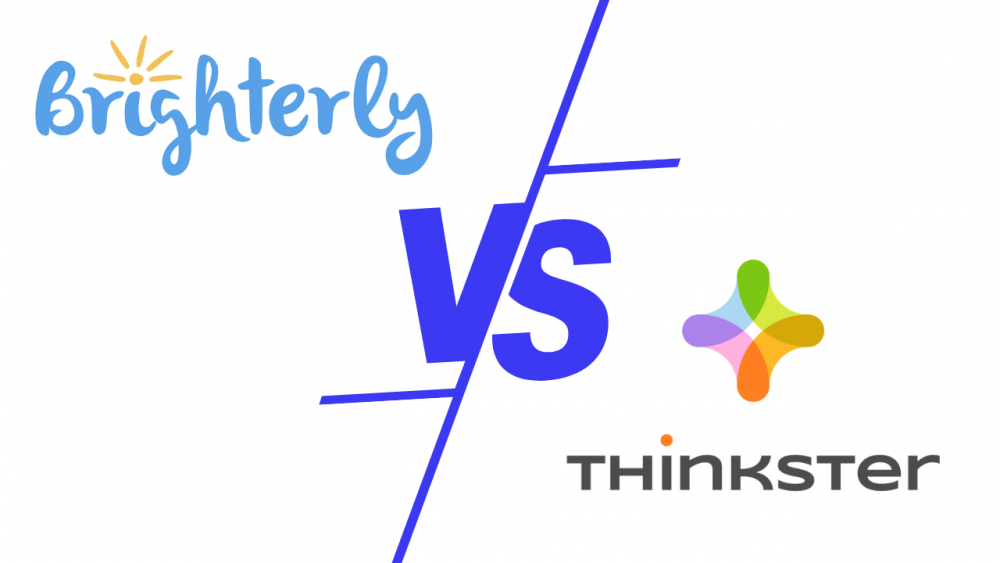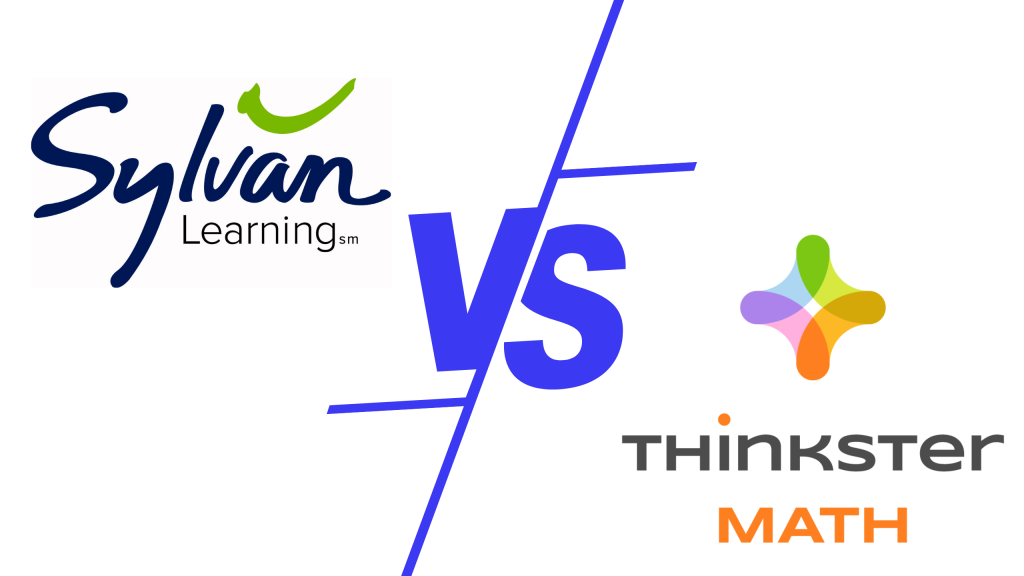

Last Updated on September 6, 2024
As a parent, you recognize the value of a solid education in shaping your child’s future. Some children may need extra support beyond the classroom to master math skills. Hiring a math tutor can make a world of difference, but it’s crucial to consider a few essential factors before making this important decision.
In this article, we will explore the essential things parents should consider before hiring a math tutor, along with comparing the different tutoring program options available and their respective benefits and limitations.
Before seeking a math tutor, take the time to assess your child’s needs. Identify the areas where they struggle or require additional reinforcement. Understanding these areas will help you find a tutor whose expertise aligns with your child’s requirements.
Understanding your child’s learning style is crucial for finding a tutor who can cater to their needs effectively. The three main learning styles are:
Each child has their own learning pace, and the math tutor needs to be patient and understanding. Some children may grasp concepts quickly, while others require more time and practice. A good tutor should be able to adjust their teaching pace to match the child’s individual speed of understanding.
Identify the specific areas in math where your child needs help. Whether it’s algebra, geometry, fractions, or word problems, look for a tutor specializing in those subjects—a tutor with expertise in the areas where your child struggles can provide targeted assistance.
Math can be challenging for some children, and it’s important to consider their motivation and confidence levels. Look for a tutor who can build a positive and encouraging learning environment. A tutor who can boost a child’s confidence and enthusiasm for math will likely yield better results.
Discuss with potential tutors about their teaching methods and philosophy. Some tutors may use a structured and repetitive approach, while others focus on conceptual understanding and problem-solving skills. Choose a tutor whose teaching approach aligns with your child’s learning style and needs.

A good math tutor should possess a combination of qualifications, skills, and characteristics that enable them to teach and support students in mastering math concepts effectively. When searching for a math tutor, consider the following qualifications:
A good math tutor should have a solid understanding of the subject matter. They should have a strong foundation in math, including proficiency in the specific topics and levels they plan to teach. A degree in math, engineering, or a related field often indicates their expertise.
Experience in teaching math is invaluable. Look for tutors who have worked with students of various ages and levels, as they will likely be familiar with different learning styles and challenges. Experienced tutors often have effective teaching methods and strategies for explaining complex concepts.
While not mandatory, a teaching certification or training in education can be an advantage. Tutors with a teaching background have pedagogical knowledge and may be better equipped to understand and address students’ individual needs.
Math can be challenging for some students, and a good tutor should be patient and empathetic. They should understand that every student learns at their own pace and be willing to adapt their teaching methods accordingly.
Effective communication is critical to being a successful math tutor. A good tutor should be able to explain concepts clearly, listen to the student’s questions and concerns, and encourage open dialogue. They should be approachable and make the student feel comfortable seeking help.
Each student is unique, and a good tutor should be adaptable in their teaching approach. They should be able to identify the student’s strengths and weaknesses and adjust their methods to suit the student’s learning style.
Math is all about problem-solving, and a good tutor should be skilled in breaking down complex problems into manageable steps. They should encourage critical thinking and help students develop problem-solving strategies.
A positive and enthusiastic attitude can significantly influence a student’s motivation and confidence. A good tutor should inspire and encourage students to enthusiastically embrace math challenges.

Parents often face the dilemma of choosing between individual and group tutoring sessions.
Individual tutoring provides one-on-one attention, allowing the tutor to focus on your child’s own strengths and weaknesses. This personalized approach can lead to faster progress.
Group tutoring can foster a collaborative learning environment, encouraging students to learn from peers.
Benefits of Individual Tutoring:
Limitations of Individual Tutoring:
Benefits of Group Tutoring:
Limitations of Group Tutoring:
The rise of technology has introduced online tutoring as a convenient alternative to traditional in-person sessions. Both options have their merits, and the choice largely depends on your child’s learning preferences and needs.
Benefits of Online Tutoring:
Limitations of Online Tutoring:
Benefits of In-Person Tutoring:
Limitations of In-Person Tutoring:
Effective communication between parents, tutors, and students is crucial for a successful tutoring experience. The tutor should be able to explain concepts clearly and encourage open communication with the child to address any difficulties or concerns.
Before hiring a math tutor, discuss their approach to tracking your child’s progress. A good tutor should regularly assess the child’s progress and provide feedback to both the child and the parents. Progress tracking helps identify improvement areas and ensure that the tutoring sessions are effective.
Each math learning program offers a unique approach to teaching and has its strengths and weaknesses.
Let’s compare some of the most popular programs:
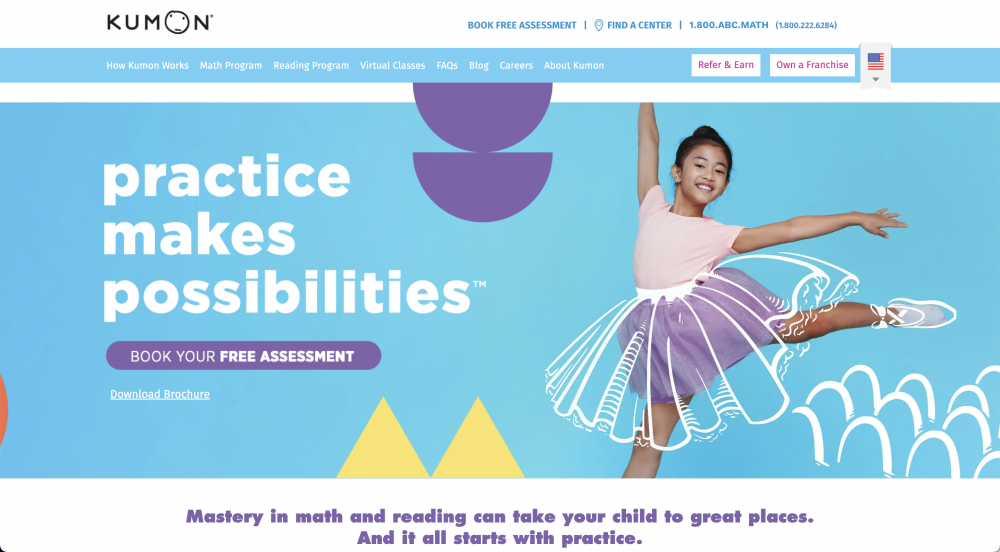
Approach: Kumon follows a structured and repetitive worksheet-based approach, focusing on mastery of fundamental skills through constant practice.
Target Audience: Suitable for students who need reinforcement in core math concepts and enjoy independent learning.
Benefits: Builds strong foundational skills, promotes discipline and self-learning, and can be done at the student’s pace.
Limitations: Lacks interactive teaching methods, may feel monotonous for some students, and may not address individual learning needs.
See our more detailed comparison for Kumon.
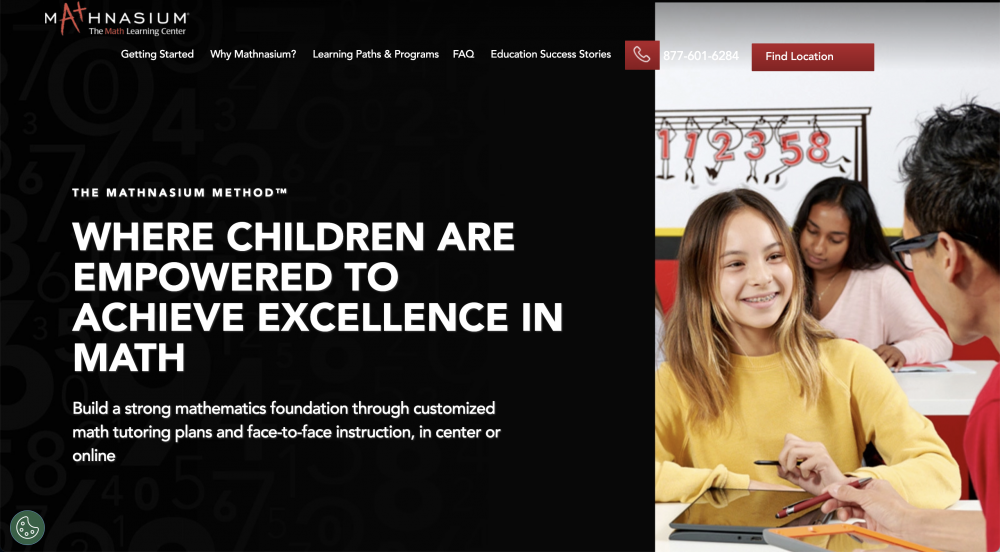
Approach: Mathnasium offers a personalized learning plan based on an initial assessment and emphasizes understanding math concepts using manipulatives and individualized instruction.
Target Audience: Ideal for students who need personalized attention and struggle with specific math concepts.
Benefits: Customized learning plans, a mix of individual and group sessions, and a focus on conceptual understanding.
Limitations: Costly compared to some other options, may have limited availability in certain locations.
See our more detailed comparison for Mathnasium.
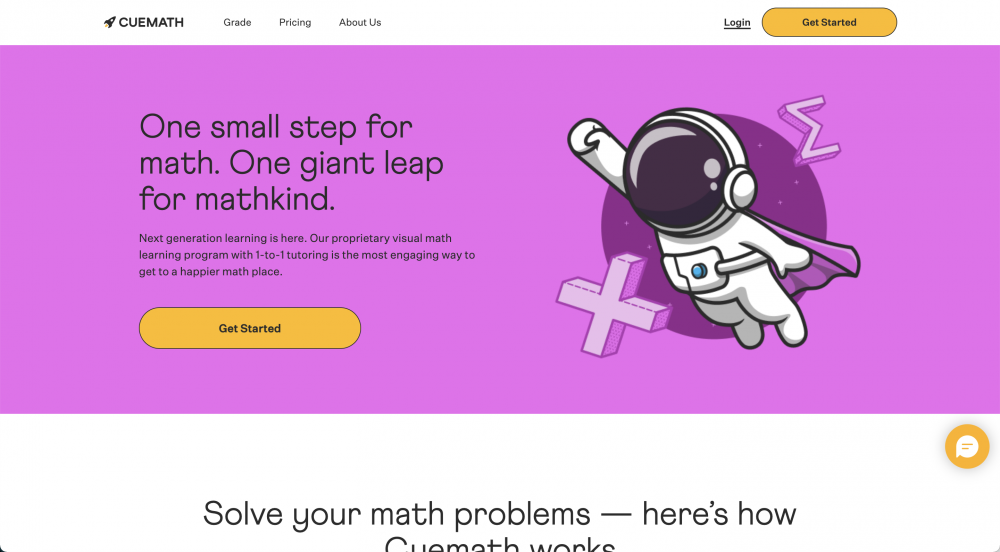
Approach: Cuemath combines online interactive content with in-person sessions by trained Cuemath tutors to develop critical thinking and logical reasoning in students.
Target Audience: Geared toward building mathematical thinking in Kindergarten to 10th-grade children.
Benefits: Emphasizes problem-solving skills, interactive content, regular assessments, and the convenience of online and offline learning.
Limitations: Not widely available with tutors from the same region; less suitable for advanced or subject-specific tutoring needs.
See our more detailed comparison for Cuemath.
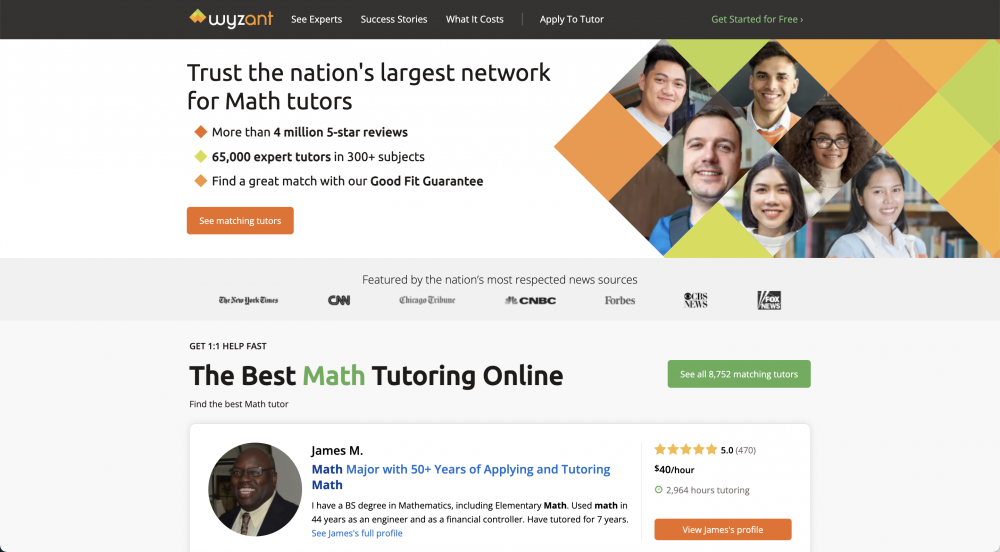
Approach: Wyzant is an online platform connecting students with qualified math tutors who offer personalized tutoring based on individual needs.
Target Audience: Suitable for students of all ages and levels seeking one-on-one tutoring.
Benefits: Wide selection of tutors, flexibility in scheduling, personalized attention, and tailored learning plans.
Limitations: The quality of tutoring may vary depending on the tutor’s expertise, and pricing can be higher compared to other platforms.
See our more detailed comparison for Wyzant.
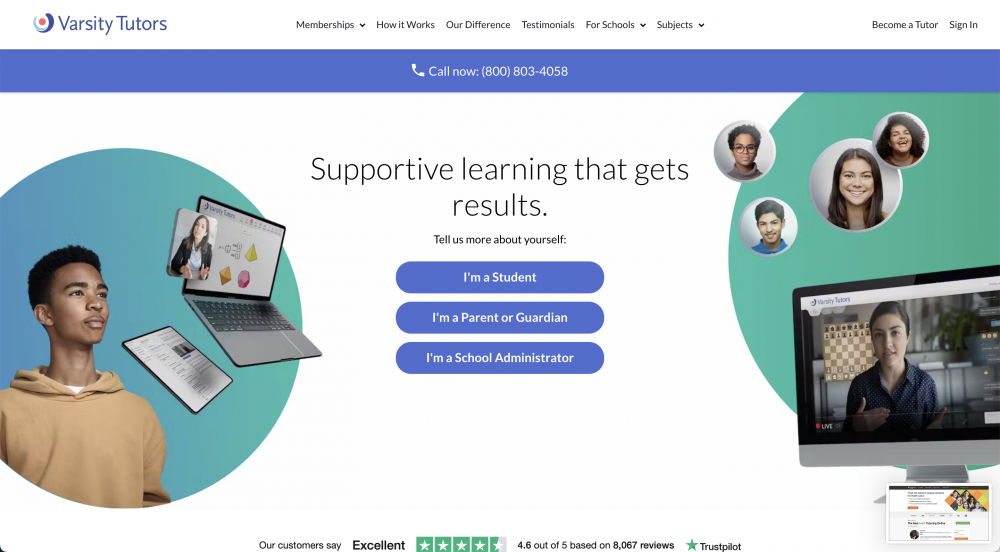
Approach: Varsity Tutors is an online platform offering personalized one-on-one tutoring in various subjects, including math.
Target Audience: Suitable for students seeking individualized attention and assistance in specific math topics.
Benefits: Access to a vast network of tutors, interactive online platform, and personalized learning experience.
Limitations: The quality of tutors may vary, and the cost can be relatively higher.
See our more detailed comparison for Varsity Tutors.
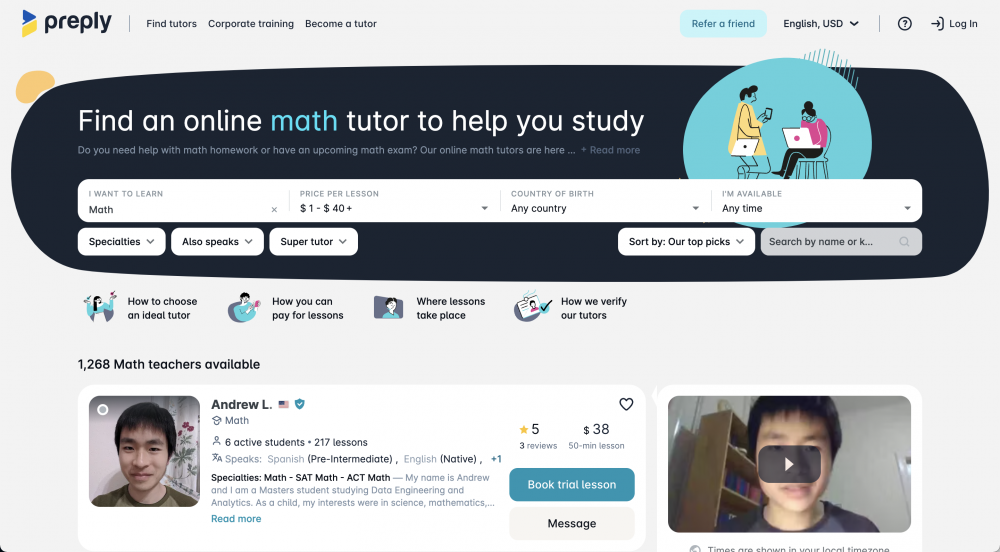
Approach: Preply is an online platform connecting students with math tutors worldwide, offering personalized lessons.
Target Audience: Suitable for students who prefer online tutoring and want flexibility in choosing tutors.
Benefits: Wide range of math tutors with diverse expertise, flexible scheduling, and interactive online learning tools.
Limitations: Tutors’ quality and expertise may vary, requiring parents to be more proactive in selecting the right tutor.
See our more detailed comparison for Preply.
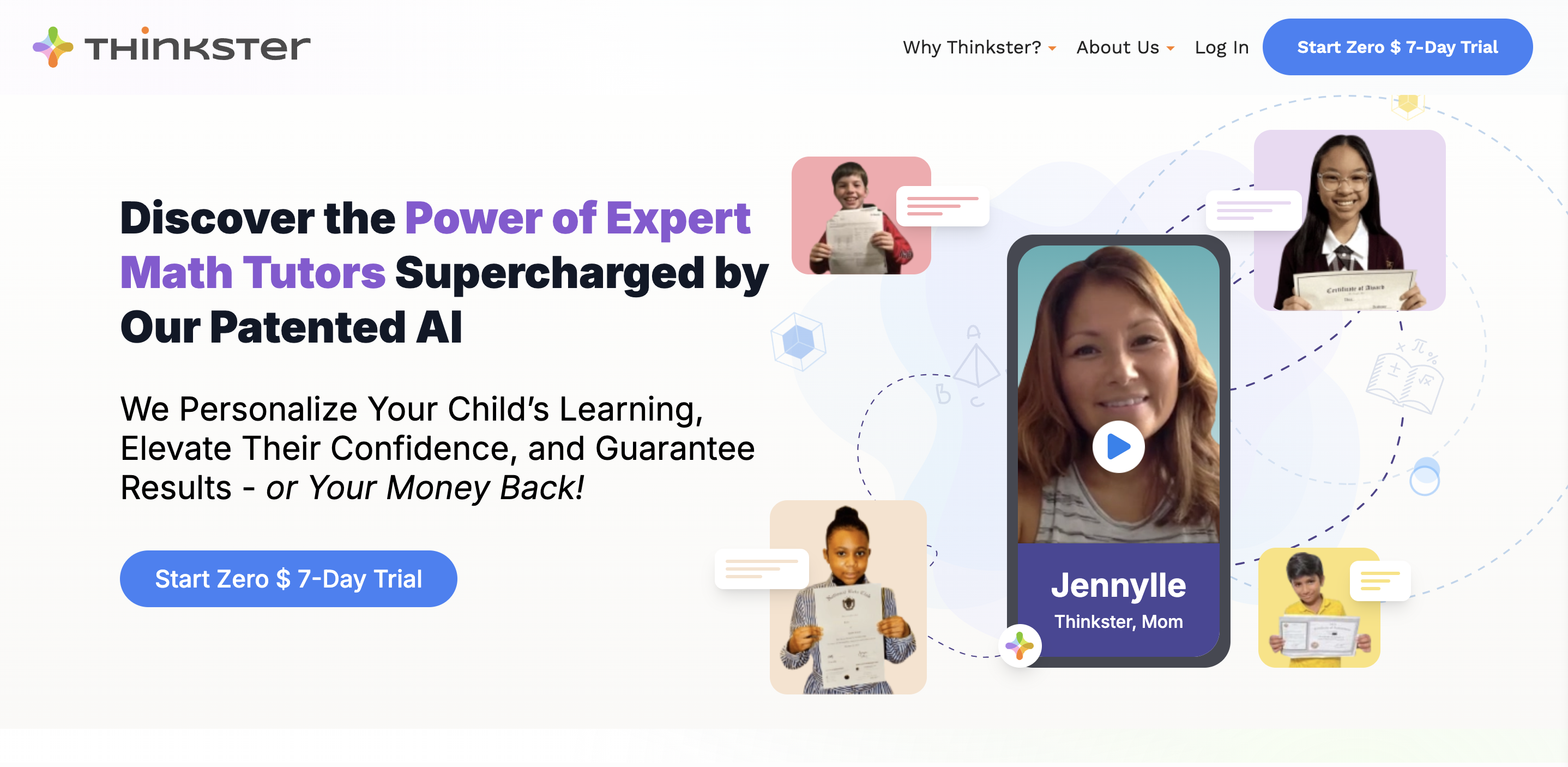
Approach: Thinkster Math combines personalized online worksheets with real-time feedback and coaching from human tutors, aiming to improve problem-solving skills and math confidence.
Target Audience: Ideal for students seeking a balance between digital practice and personalized human feedback.
Benefits: AI-driven personalized learning plans, world-class curriculum, individualized attention, and real-time feedback, 1:1 private tutoring sessions. Comes with a 7-day risk-free trial.
Limitations: Cost may concern some parents, but plans start as low as $45/month. The level of tutor involvement may vary based on the chosen plan.
Thinkster collects reviews via Verified Reviews and has an average 4.9 out of 5 star rating. Check out third-party collected parent reviews and our Student Hall of Fame.
Choosing the right math learning program depends on your child’s individual needs, learning styles, and preferences. Programs like Kumon and Mathnasium offer structured learning paths, while online platforms like Wyzant, Varsity Tutors, Preply Math, and Cuemath provide more flexibility and a broader range of tutor options. Thinkster Math stands out with its blend of digital learning and human tutor coaching.
When deciding, consider your child’s strengths and weaknesses in math, preferred learning environment (online or in-person), budget, and the level of personalized attention required. A thorough evaluation of these factors will help you select the math learning program that best suits your child’s needs and enhances their mathematical proficiency.
Note: Features and support are constantly changing. This analysis was accurate to the best of our knowledge as of July 2023.
All trademarks, logos, and brand names are the property of their respective owners. All company, product and service names used in this article are for identification purposes only.

